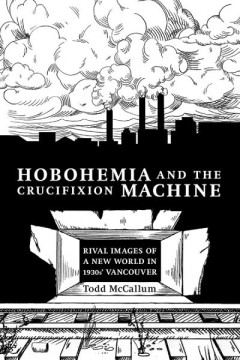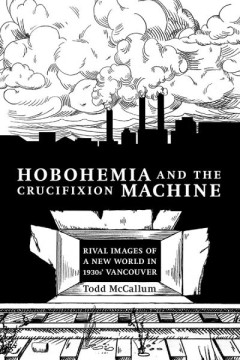Filter by

Hobohemia and the Crucifixion Machine Rival Images of a New World in 1930s V…
In the early years of the Great Depression, thousands of unemployed homeless transients settled into Vancouver’s “hobo jungle.” The jungle operated as a distinct community, in which goods were exchanged and shared directly, without benefit of currency. The organization of life was immediate and consensual, conducted in the absence of capital accumulation. But as the transients moved from …
- Edition
- -
- ISBN/ISSN
- 9781926836287.01
- Collation
- -
- Series Title
- -
- Call Number
- 332 pages

Hobohemia and the Crucifixion Machine Rival Images of a New World in 1930s V…
Vancouver’s municipal government entered into contractual relationships with dozens of private businesses, tendering bids for meals in much the same fashion as for printing jobs and construction projects. As a result, entrepreneurs clamoured to get their share of the state spending. With the emergence of work relief camps, the provincial government harnessed the only currency that homeless me…
- Edition
- -
- ISBN/ISSN
- 9781926836287.01
- Collation
- -
- Series Title
- Fabriks: Studies in the Working Class
- Call Number
- -
 Computer Science, Information & General Works
Computer Science, Information & General Works  Philosophy & Psychology
Philosophy & Psychology  Religion
Religion  Social Sciences
Social Sciences  Language
Language  Pure Science
Pure Science  Applied Sciences
Applied Sciences  Art & Recreation
Art & Recreation  Literature
Literature  History & Geography
History & Geography